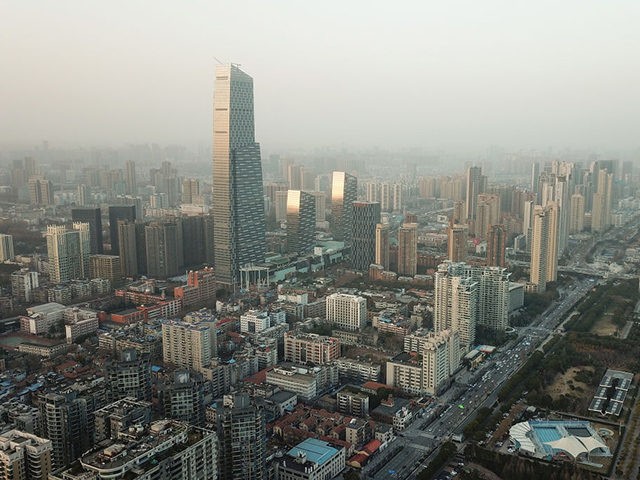More leaks emerged Friday from the World Health Organization (W.H.O.) team sent to investigate the origins of the coronavirus in Wuhan, China. According to the Wall Street Journal, some of the W.H.O. investigators had “heated exchanges” with Chinese officials who refused to share data that could help pinpoint the origins of the pandemic.
W.H.O. team members have made a few previous statements that differed from their organization’s official conclusions or the positions their Chinese hosts have taken, but the WSJ report Friday offered some of most striking evidence to date of China deliberately obstructing the W.H.O. investigation.
In essence, according to the Journal‘s anonymous sources, Chinese scientists told the visiting foreign investigators they would have to take China’s word on important details of 174 early coronavirus cases in Wuhan, because they were not permitted to see the raw data:
Chinese officials and scientists provided their own extensive summaries and analysis of data on the cases, said the WHO team members. They also supplied aggregated data and analysis on retrospective searches through medical records in the months before the Wuhan outbreak was identified, saying that they had found no evidence of the virus.
But the WHO team wasn’t allowed to view the raw underlying data on those retrospective studies, which could allow them to conduct their own analysis on how early and how extensively the virus began to spread in China, the team members said. Member states typically provide such data — anonymized, but disaggregated so investigators can see all other relevant details on each case — as part of WHO investigations, said team members.
“They showed us a couple of examples, but that’s not the same as doing all of them, which is standard epidemiological investigation,” said Dominic Dwyer, an Australian microbiologist on the WHO team. “So then, you know, the interpretation of that data becomes more limited from our point of view, although the other side might see it as being quite good.”
W.H.O. investigators also said Chinese officials waited far too long — over a year, to be exact — before conducting antibody tests on a group of about 90 hospital patients in central China who reported symptoms similar to the Chinese coronavirus before the outbreak officially began in Wuhan. Because these tests were delayed for so long, it became impossible to determine if they were suffering from coronavirus or a respiratory ailment with similar symptoms.
The WSJ noted that World Health Organization member states generally provide the kind of raw data China is refusing to furnish, but W.H.O. cannot force them to do so. China’s failure to be completely open and forthcoming during the greatest worldwide health crisis in centuries is difficult to explain without considering sinister motives.
On the record, W.H.O. and its investigators have been reluctant to accuse the Chinese of malfeasance or challenge the analysis Chinese scientists provided in lieu of the raw data. However, some of the investigators have developed a habit of dropping little passive-aggressive complaints about China’s secrecy into their public statements, as with Danish epidemiologist Thea Fischer remarking that “sometimes emotions have run really high” during her trip to Wuhan, or Dwyer shrugging off China’s refusal to provide requested blood samples from influenza screenings conducted just before the pandemic erupted.
“They said they were destroyed and so on. You know, I guess one accepts that on face value,” Dwyer said with resigned skepticism.

COMMENTS
Please let us know if you're having issues with commenting.